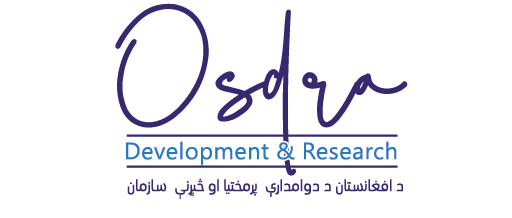Types of Calendars and Its converters

In today’s fast-paced world, calendars are crucial tools that help us manage our schedules, keep track of time, and maintain organization. The world’s most used calendar system is the Gregorian calendar. However, several other date calendars have different functions in various cultures. This in-depth study will examine the many kinds of date calendars and their converters, illuminating their purpose and application.
Introduction
Calendars are more than just a means of keeping track of dates; they also serve as windows into the complex web of human history and culture. Each calendar system, from the complex Mayan calendar to the lunar-based Islamic Hijri calendar, reflects the distinct viewpoint of the people who established it.The Origin and History of the Gregorian Calendar
The Gregorian calendar, which Pope Gregory XIII replaced in the Julian calendar in 1582, is the one most often used today. It is a solar calendar since it is based on the Earth’s orbit around the sun.Organization and Months
There are 12 months in the Gregorian calendar, each with a unique set of days. Except for February, which has 28 days or 29 in leap years, several months have 30 or 31 days.Importance in Contemporary Society
The Gregorian calendar is the one that is generally used for civil purposes. It serves as the framework for planning global events, commercial endeavors, and daily life.Moon Calendars
Workings of Lunar Calendars
The lunar cycles serve as the foundation for lunar calendars. They play a significant influence in defining the dates of festivals and religious observances. They are largely used in religious and cultural contexts.Hijri Calendar in Islam
Muslims worldwide utilize the Islamic Hijri lunar calendar to identify significant dates like Ramadan and Eid al-Fitr.The Afghan Date Calendar
The Afghan calendar, sometimes called the Afghan Solar calendar or Solar Hijri calendar, or Hijri Shamsi, is a distinctive timekeeping system mostly based on astronomical calculations. It is used for religious, Islamic, cultural, and administrative purposes and is fundamental to Afghan culture. You can find more about Georgian date compare to Afghan Date .Lunar Chinese Calendar
The Chinese Lunar Calendar, commonly called the Agricultural Calendar, is essential for planning festivals and agricultural events in China.Sun-based calendars
The Mayan calendar
In terms of anticipating cosmic events, the Mayan calendar is renowned for its intricacy and precision. It is divided into several cycles, including the Long Count, Tzolk’in, and Haab.Calendar of the Hindu Sun
Hindus employ the calendar, which mixes lunar and solar elements, for astrological and religious purposes.Old-fashioned calendars
Christian Calendar
Ancient Rome made use of the Roman calendar, which was a forerunner of the Julian calendar. It had ten months and 304 days in a year.Calendar, Julian
The Gregorian calendar evolved largely due to Julius Caesar’s introduction of the Julian calendar in 45 BCE.Calendar for Egypt
One of the earliest known calendars was the Egyptian calendar, which was utilized for agricultural and religious purposes and was based on the moon cycle.Different Calendars
Biblical Calendar
Jewish religious observances and the determination of holidays employ the lunisolar Hebrew calendar.Pawukon calendar of Bali
Time is divided into ten contiguous weeks of one to ten days each according to the Balinese Pawukon calendar, which is indigenous to Bali, Indonesia. Calendar Conversion’s Importance Coordinating communication and scheduling among various calendar systems requires calendar conversion. It fosters cross-cultural communication and global interactions.Tools and converters for dates
Numerous software programs and internet resources are available to convert dates between different calendar systems. These converters make the procedure easier and guarantee accuracy. Finding corresponding dates in lunar calendars is made possible by the Gregorian to Lunar Conversion tool. Conversion from Lunar to Gregorian: Helpful for converting dates from the Lunar Calendar to the Gregorian Calendar. You can convert dates from the Gregorian calendar to several different calendar systems using this tool.Calendars’ Function Across Cultures
Calendars play a significant role in cultural customs. Respect and admiration for different cultures can be fostered by understanding the significance of various calendar systems.The Best Calendar to Meet Your Needs
The best calendar system will depend on your cultural, religious, and practical needs. Every calendar comes with special features and advantages.Conversion Challenges with Calendars
Due to differences in leap years, months, and calculations, converting dates between calendar systems can be challenging. It calls for accuracy and knowledge. Contemporary Uses of Alternative Calendars Alternative calendars are used in various contemporary contexts, including astrology, archaeology, and cultural preservation, in addition to their historical and cultural value.Conclusion
Understanding several calendar systems and their conversions is crucial in a diverse and globally connected world. It allows us to communicate, promotes cultural understanding, and ensures we can celebrate our common humanity while upholding our customs.FAQ
Most frequent questions and answers
The Mayan calendar continues to interest archaeologists, astronomers, and fans for its precision and historical significance.
Lunar calendars base their month lengths on the moon’s cycles, which vary slightly in duration.
Numerous internet converters can be used for this, making the procedure simple.
Yes, some companies employ alternate calendars for marketing purposes and to be sensitive to cultural differences.

